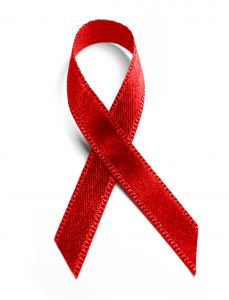Poll: Americans Struggle With HIV/AIDS Issues

Almost two-fifths of Americans have difficulty sympathizing with HIV/AIDS victims, according toa study commissioned and released by Compassion International.
Thirty-nine percent of the people polled agreed strongly or somewhat with the statement: "You have more sympathy for people who have cancer than you do for people who have HIV or AIDS because you feel most of those with HIV/AIDS got the disease as a result of their decisions or lifestyles."
Roughly one out of seven Americans (15 percent) said they donated in 2005 to an organization specifically to address the HIV/AIDS crisis. But the survey, conducted in advance of World AIDS Day on Dec. 1, also found that only 8 percent of Americans have a compassionate attitude toward HIV/AIDS victims and have donated to the cause.
This type of conflicting behavior and attitudes was a common theme inthe study. More than half of Americans -- 52 percent -- are unengaged with the HIV/AIDS crisis. They expressed conflicting, neutral or undecided views and behaviors related to addressing the issue. In fact, half of those who donated money to HIV/AIDS causes in the last year either admit they struggle to be sympathetic toward the victims of HIV/AIDS or they doubt that individuals can make a major difference addressing the disease.
On the other hand, roughly twice as many respondents said they would rather address HIV/AIDS than global warming (52 to 28 percent).
"Awareness is not enough. Education is not enough. Nutrition is not enough. Government subsidized anti-retroviral drug 'access' is not enough," says Dr. Scott Todd, director of Compassion's AIDS initiative. "It takes all that and more ... counseling, home visits, facilitating transport,payment for clinical services, lab tests and medicines including anti-retroviral drugs. It takes people filled with compassion, whose faithand hope comes from a deeper spring than the world has ever known. The truth is -- we can make a difference."
Compassion International, a Christian ministry to poor children indeveloping countries, commissioned the study as part of its annual PovertyPoll. The Poverty Poll is commissioned in the OmniPoll, a series oftracking studies conducted every year by The Barna Group.
United Nations figures indicate that AIDS has killed more than 25 million people since it was first recognized in 1981. Of the people today who have HIV, which causes AIDS, two-thirds live in sub-Saharan Africa.That's 24.5 million people, according to 2005 statistics.
More than 12 million African children have lost one or both parents toAIDS, and nine out of 10 children infected with HIV, roughly two million, live in sub-Saharan Africa.
Compassion's AIDS Initiative provides prevention, treatment and rehabilitative care for Compassion-sponsored African children and their families who are infected with the virus. Over 100,000 children and theirfamilies or caregivers have been tested for HIV/AIDS as part of Compassion's program in Africa.
One of the key features of the program isanti-retroviral therapy -- treating HIV with drugs that are difficult to obtain in the developing world. The Barna Group, a premier Christian polling organization, conducted 1,004 telephone interviews of adults 18 and older in the continental UnitedStates in October for the poll.
"We see a full range of perspectives when it comes to HIV/AIDS -- fromthose who feel it is not a serious or meaningful issue to those who arehighly engaged in helping to address the problem," says David Kinnaman, Barna's vice president. "But most Americans are currently in no-man's land,feeling that the problem is significant enough to warrant attention, but not necessarily their attention. They are unwilling to -- or uncertain how to -- leverage their time and energy to deal with the disease and its outcomes."
The survey explored people's willingness to support HIV/AIDS incontrast with other significant charitable causes and issues - such asgiving people access to clean water, treating cancer, fighting poverty anddealing with global warming. The research shows that Americans clearly rank access to clean water above the idea of addressing HIV/AIDS (66 to 13 percent). Respondents also said that HIV/AIDS is less important than dealing with cancer (47 to 19 percent) or addressing poverty (47 to 22 percent).
The research explored the areas in which Americans believe they caninfluence the world. Four areas were assessed: domestic poverty, terrorism,the international HIV/AIDS epidemic and international poverty. In theseareas, the poll discovered that the perspectives of born-again Christianswere statistically identical to those of other Americans.
Most Americans agreed they could have a major impact on only one of the four areas -- poverty in the United States. Overall, 64 percent of adults said they believe that individuals in this country can have a "major"influence on this.
About half of Americans believed they can influence the war on terror(48 percent). One-third believed individuals can effectively address theHIV/AIDS crisis affecting other countries (37 percent), but only one-quarter (28 percent) were convinced a major impact could be made on international poverty.
Even a $1 or $2 contribution would be appreciated. If you can't contribute, please support us by clicking the Google ad at the top of the page. Thank you!
Labels: AIDS, cancer, compassion, epidemic, HIV, poll, poverty, sympathy


0 Comments:
Post a Comment
Subscribe to Post Comments [Atom]
<< Home